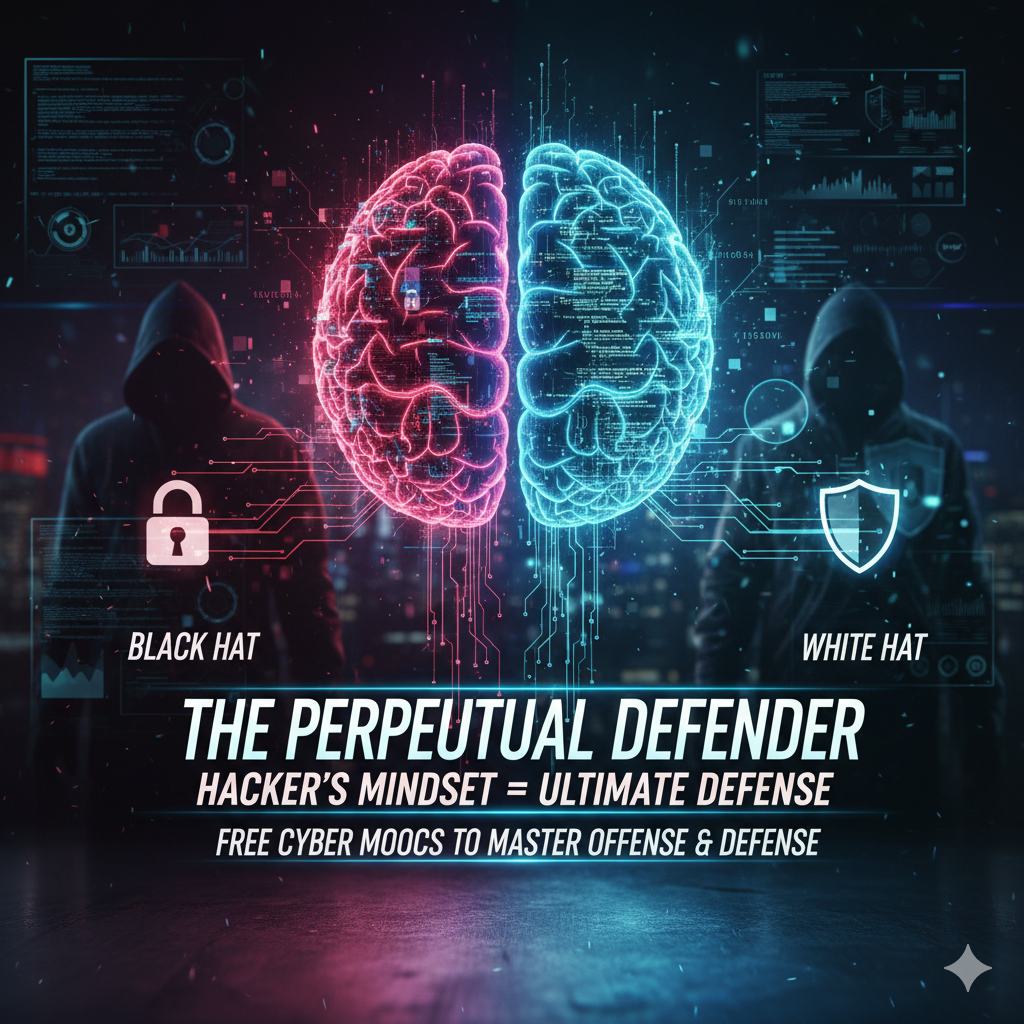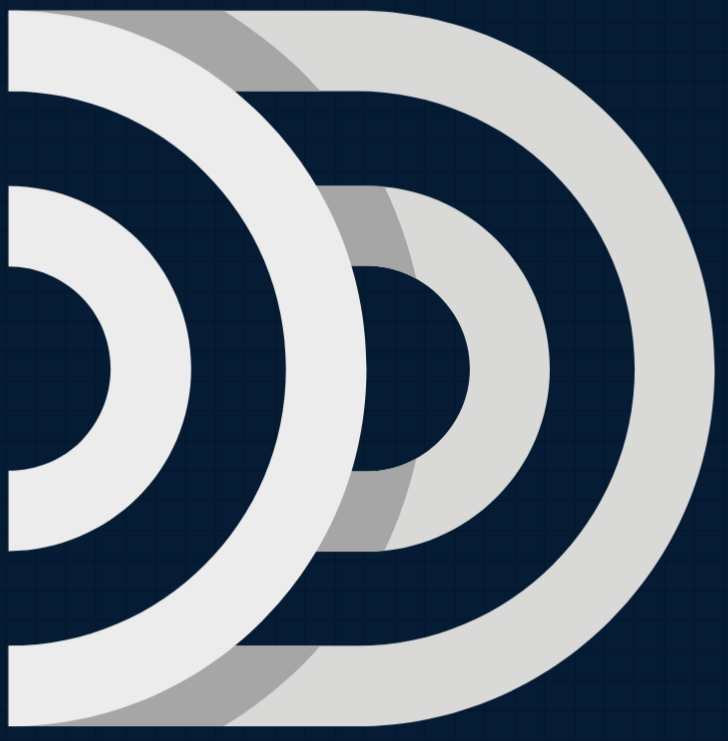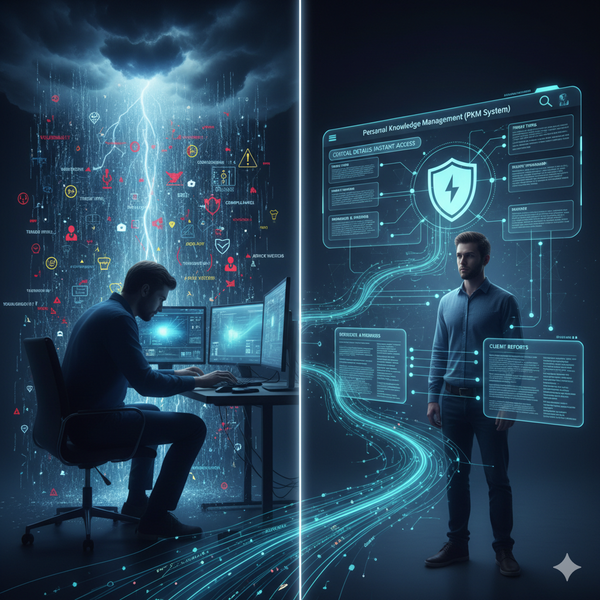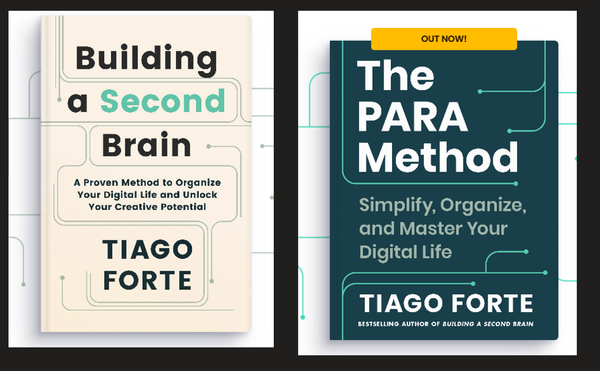The Perpetual Defender: Why a Hacker’s Mindset is the Ultimate Cybersecurity Skill

The digital landscape is a battlefield defined by one absolute rule: The attack always evolves. For those of us dedicated to protecting systems—the "White Hats"—stagnation is surrender. To win the fight, we must adopt a philosophy of perpetual learning and embrace the enemy's mindset.
Understanding the Black Hat Mindset: The Key to Superior Defense
A defender's job is to protect everything; an attacker's job is to find one way in. This asymmetry means that simply learning defense tactics is insufficient. To build truly resilient systems, you must anticipate novel attack vectors, and that requires knowing how the adversary thinks.
The Hacker's Mindset is defined by:
- Insatiable Curiosity: A relentless desire to understand how things really work, not just how they're supposed to work.
- Creative Persistence: When one technique fails, a Black Hat doesn't quit; they pivot and try a dozen creative alternatives. This resilience is the bedrock of penetration testing.
- System Mastery: Understanding not just one layer of a system, but the entire stack: network architecture, operating systems, and human psychology (Social Engineering).
By knowing how Black Hats operate, a White Hat can stop relying on checklist security and instead design defenses that anticipate human ingenuity and exploit logic flaws.
Your Free Path to a Perpetual Learning Pipeline
You don't need expensive boot camps to cultivate this adversarial thinking. The cybersecurity community offers numerous high-quality free MOOCs and platforms designed to build your skills from the ground up.
Here is a recommended path using these accessible resources to learn hacking fundamentals:
Phase 1: Foundations and Entry-Level Mindset
Start by building a rock-solid base in core security and attacker concepts.
| Resource | Focus Area | Why It Matters |
| Google: Foundations of Cybersecurity (Coursera/Audit) | Core concepts, risk, network security, and SIEM principles. | Provides the structured knowledge and terminology required for any cyber career. |
| Harvard: CS50's Introduction to Cybersecurity (Harvard Online/Audit) | Technical and non-technical introduction to securing data, devices, and systems. | Excellent for building context and understanding the breadth of the field. |
| Cybrary (Free Foundational Courses) | Foundational courses on various paths, including defensive security and cyber risk. | Helps you sample different specializations to find your focus. |
Phase 2: Offensive Skills & Practical Hacking
Transition from theory to offensive practice, learning the tools and methodologies of penetration testing.
| Resource | Focus Area | Why It Matters |
| Cisco Networking Academy: Ethical Hacker | Offensive security, penetration testing methodologies, and vulnerability scanning. | Provides a structured curriculum that covers scoping, reconnaissance, and exploitation. |
| **EC-Council: Ethical Hacking Essentials (E | HE)** (Coursera/edX Audit) | Fundamentals of ethical hacking, threat assessment, and password cracking countermeasures. |
| Great Learning Academy: Introduction to Ethical Hacking | Footprinting, scanning, vulnerability assessment, and exploitation techniques. | Focuses on the hands-on process of discovering and exploiting common flaws. |
Phase 3: Hands-on Practice and Specialization
A hacker is made in the lab. These platforms provide free, gamified environments to apply your knowledge.
| Resource | Focus Area | Why It Matters |
| PortSwigger Web Security Academy | Web Application Security, including the OWASP Top 10 vulnerabilities (SQLi, XSS, etc.). | Completely free and industry-standard for web hacking. Essential for understanding application weaknesses. |
| TryHackMe (Free Rooms) & Hack The Box (Tier-0 Modules) | Hands-on ethical hacking, system exploitation, and Capture The Flag (CTF) challenges. | Provides a safe, legal environment to practice live hacking techniques on vulnerable machines. |
| OSINT (Open-Source Intelligence): Look for dedicated free courses on Cybrary or Great Learning. | Gathering intelligence from public data sources to build attack profiles. | Crucial for the reconnaissance phase of any attack or defensive threat intelligence strategy. |
Conclusion: Stay Curious, Stay Ahead
The commitment to cybersecurity is a commitment to continuous learning. By leveraging these free MOOCs and hands-on platforms, you are not just learning defensive techniques; you are actively training yourself to think like a hacker—a critical skill that will ensure you remain the Perpetual Defender in the face of relentless innovation.
You can get started right now with an in-depth course on the subject: Ethical Hacking in 12 Hours - Full Course. This YouTube video offers a complete, hands-on course covering ethical hacking fundamentals for beginners.





